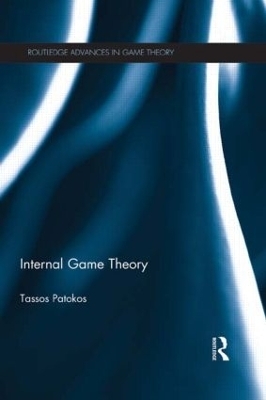
Internal Game Theory
Seiten
2015
Routledge (Verlag)
978-1-138-90232-9 (ISBN)
Routledge (Verlag)
978-1-138-90232-9 (ISBN)
This book breaks new ground in combining psychological with evolutionary game theory, making for a highly promising way towards a better understanding of the individual and the development of their behaviour and the individual’s perceptions of it.
Traditional game theory requires at least two individuals. This book extends game theory to the inner workings of a single person.
Using game theory to analyse single individuals makes sense if one thinks of individuals as consisting of two or more relatively autonomous partitions that might have conflicting motives. This is not to say that individuals are literally made up from multiple selves; it only suffices that we adopt a portrayal of the individual as a multilayered entity or of a dual nature, in a manner similar to Adam Smith’s depiction of an "impartial spectator" existing within the individual,
The notion that individuals may be considered as collections of distinct partitions or "sub-selves" has been challenging writers from diverse fields for many centuries. This book breaks new ground in combining psychological with evolutionary game theory, making for a highly promising way towards a better understanding of the individual and the development of their behaviour, along with the individual’s own perceptions on it.
Traditional game theory requires at least two individuals. This book extends game theory to the inner workings of a single person.
Using game theory to analyse single individuals makes sense if one thinks of individuals as consisting of two or more relatively autonomous partitions that might have conflicting motives. This is not to say that individuals are literally made up from multiple selves; it only suffices that we adopt a portrayal of the individual as a multilayered entity or of a dual nature, in a manner similar to Adam Smith’s depiction of an "impartial spectator" existing within the individual,
The notion that individuals may be considered as collections of distinct partitions or "sub-selves" has been challenging writers from diverse fields for many centuries. This book breaks new ground in combining psychological with evolutionary game theory, making for a highly promising way towards a better understanding of the individual and the development of their behaviour, along with the individual’s own perceptions on it.
'Tassos Patokos is Senior Lecturer in the Department of Accounting, Finance and Economics at the University of Hertfordshir
1. Overview 2. Individual Choice Theory 3. The Partitioned Self 4. Using Game Theory in Internal Games 5. The Importance of Intrapersonal Beliefs: Psychological Game Theory and Internal Games 6. Evolution of Beliefs and Psychological Evolutionary Equilibria 7. Applications and Conclusion
| Reihe/Serie | Routledge Advances in Game Theory |
|---|---|
| Zusatzinfo | 16 Tables, black and white; 30 Line drawings, black and white; 30 Illustrations, black and white |
| Verlagsort | London |
| Sprache | englisch |
| Maße | 156 x 234 mm |
| Gewicht | 362 g |
| Themenwelt | Geisteswissenschaften ► Psychologie ► Verhaltenstherapie |
| Mathematik / Informatik ► Mathematik ► Angewandte Mathematik | |
| Mathematik / Informatik ► Mathematik ► Finanz- / Wirtschaftsmathematik | |
| Wirtschaft ► Allgemeines / Lexika | |
| Wirtschaft ► Volkswirtschaftslehre ► Mikroökonomie | |
| ISBN-10 | 1-138-90232-2 / 1138902322 |
| ISBN-13 | 978-1-138-90232-9 / 9781138902329 |
| Zustand | Neuware |
| Informationen gemäß Produktsicherheitsverordnung (GPSR) | |
| Haben Sie eine Frage zum Produkt? |
Mehr entdecken
aus dem Bereich
aus dem Bereich
psychodynamisch denken – verhaltenstherapeutisch handeln
Buch | Hardcover (2023)
Schattauer (Verlag)
48,00 €
Buch (2024)
Beltz (Verlag)
38,00 €


